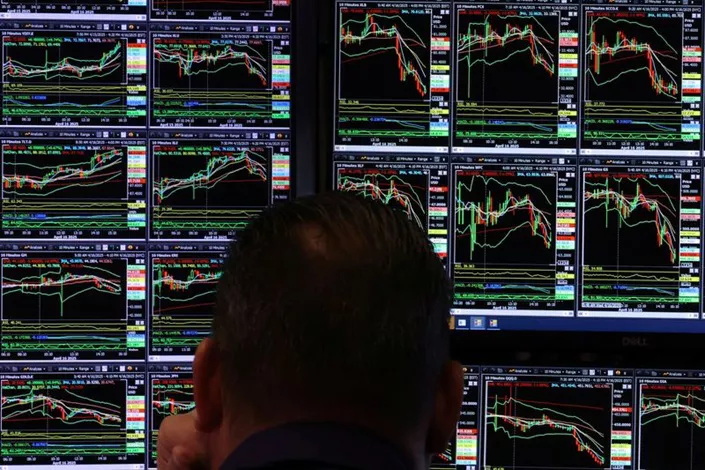The effects of President Donald Trump’s global trade war are becoming more evident, putting increasing pressure on multiple industries and U.S. stock markets. On Wednesday, stocks fell across the board, with technology companies taking a particularly hard hit after key players like Nvidia warned of significant financial losses due to their reliance on global supply chains.
Airlines are preparing for an unpredictable summer travel season, while Federal Reserve Chairman Jerome Powell highlighted slowing economic growth and expressed concern about the impact of tariffs on inflation. Despite Trump’s claims that many countries are eager to strike deals with the U.S., progress has been slow, and uncertainty remains.
The trade war between the world’s two largest economies, the U.S. and China, continues to intensify, while U.S. negotiations with the European Union, Canada, and other countries remain unclear. Jean-Christophe Babin, CEO of Bulgari, summed up the situation, saying, “What was true yesterday is no longer true today, what will be tomorrow I do not know.”
Technology companies are at the forefront of these challenges. Nvidia warned that its sales to China could result in a $5.5 billion loss due to U.S. restrictions on AI chip exports. ASML, the world’s leading supplier of chip-making equipment, also expressed uncertainty about its future prospects due to tariffs. Other U.S. chip manufacturers could lose around $1 billion annually, according to industry experts.
The stock market continued its downward trend on Wednesday, with the Nasdaq Composite falling by 3%, driven by a 7% drop in Nvidia shares. Advanced Micro Devices, another chipmaker, also announced an $800 million loss due to the export restrictions.
Some companies, including United Airlines, have adjusted their forecasts, acknowledging the unpredictability of the current economic environment. While United kept its 2025 profit outlook, it presented two possible scenarios, signaling the challenges of making predictions in such uncertain times.
On the diplomatic front, Japan has become a key player in the ongoing trade discussions. Japan, which exports over a million cars to the U.S. each year, could see prices rise significantly if tariffs remain in place. Automakers like Nissan have suggested shifting some production to the U.S., but this process could take years to implement.
U.S. Federal Reserve Chair Jerome Powell, speaking in Chicago, acknowledged the slowing economy and warned that tariffs could drive inflation higher, with some of the costs being passed on to consumers. Consumer sentiment has declined since Trump’s escalation of tariff threats in February.
While banking executives have noted that consumer spending has not yet plummeted, cracks are beginning to appear. March retail sales were strong, boosted by a surge in auto sales, but other spending categories were softer. Service-sector spending may also slow as consumers, worried about rising prices, focus on purchasing goods.
Retailers are already preparing for higher prices, with China-based companies like Temu and Shein urging consumers to buy now before price hikes begin on April 25. Trade disruptions are also affecting the flow of goods, with businesses scrambling to manage supply chains.
Marko Bebek, a sales manager at L.B. White, a U.S. manufacturer of hog barn equipment, observed that many companies rushed to secure inventory in March to avoid potential delays caused by tariffs. The path ahead for trade and spending remains uncertain, with businesses and consumers alike navigating a shifting economic landscape.
Related Topics:


